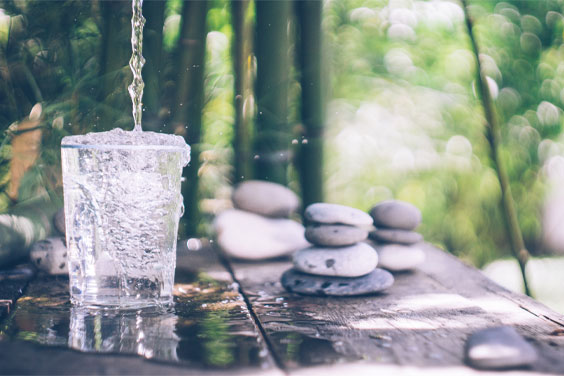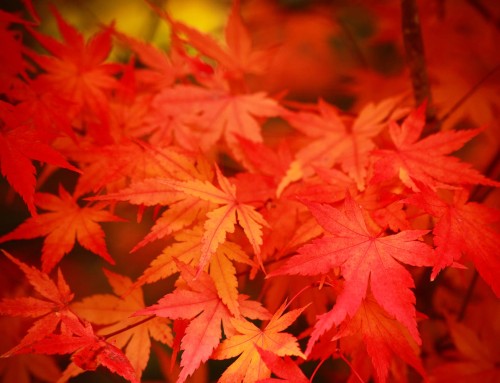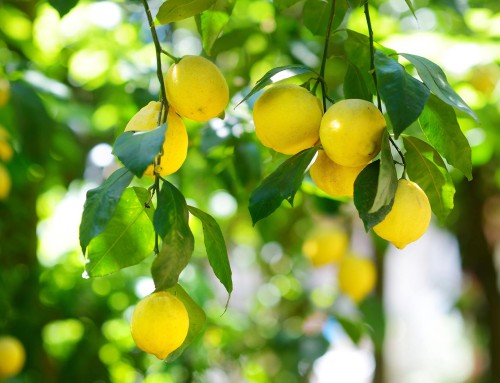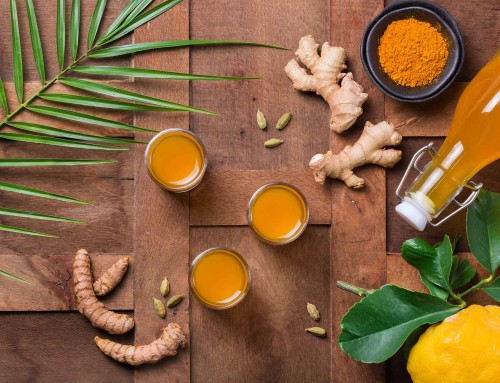Cultivating the Inner Garden
By Angela Hope-Murray

Returning to the normal routine after a busy Christmas period, filled with biscuits and puddings?
Most people will be in the mood to start January afresh and think about renewal to ensure that our health and immunity are in good shape for the challenges of the year ahead. In harmony with nature it always seems easier to make a fresh start now. With this in mind in my last blog I remarked about the pervasive use of use of artificial chemicals in our diet, that harm the inner flora known as the microbiome and give rise to ama in the system.
You may ask that what has this got to do with Ayurveda? In the Charaka Samhita Vimansthan 8/14 it states that: “The science of life shall never attain finality. Therefore, humility and relentless industry should characterise your endeavour and approach to knowledge. The entire world consists of teachers for the wise. Therefore knowledge conducive to health, longevity, fame and excellence coming from an unfamiliar source should be received, assimilated and utilised with earnestness.”
Bearing in mind the awareness that Ayurveda has relevance to our current toxic world I would like to address some ways of caring for our digestive system and its bacterial flora, which are so vital to our existence and there is no better place to start than water. Since our physiology is mostly made up of water we must address first and foremost, the purity of it in our diet.
Much is spoken about it in the ancient texts; its potency is cold, while its specific action is as a cardiac tonic and it is an alleviator of pitta dosha. Currently, interest in water intake of dementia patients in a clinic in Japan has been examined and it was found that those who had insufficient water starved their brain of O2 and other micronutrients. Just by giving them 250 ml of water patients stopped wondering about screaming at night and they remained much more stable if they were given this amount daily.

According to the ancient wisdom of Ayurveda, therapeutically water is said to cure ajirna or indigestion, srama or exhaustion, chardi or vomiting, murccha or fainting, mada or intoxication, bhrama or giddiness and daha or burning sensation.
There is also a list of contraindications to the use of cold water and these include the first stage of fever, abscesses, anaemia, immediately after the administration of shodhana or elimination therapy such as emesis or purgation after the intake of oil or ghee etc and diseases caused by vitiated vata which as I’m sure you are aware is cold in nature.
The lists of the various types of water are extensive and by way of example there are 4 types of rainwater alone which are listed.
- Dhara, rain-water after it falls on the ground.
- Divya, rainwater collected before falling on the ground.
- Tusaraja, or water originating from dew and frost.
- Karahaima, which is water collected from hailstones and snow.
As in everything in Ayurveda we can only marvel at the level of observation of the natural world and how it manifests as qualities which all have their subtle effect on our lives.
Because pesticide contamination is the central thrust of this blog and all the associated issues I mentioned in the previous article. I want to bring to your attention to the fact that our drinking water today, contains many undesirable chemicals such as pharmaceuticals, pesticides, harmful bacteria and herbicides. Even bottled water has been found adulterated which can really upset the delicate flora in our gut, that powers 80% of our immune systems. The best and most practical way to address this issue is to fit a filter to your water supply. The reverse osmosis unit known as Propur or Aquasana comes out best for filtering out all contaminants including glyphosate from personal experience the water tastes infinitely better which satisfies the Ayurvedic criteria of proper use of the sense of taste in good health. With something so fundamental to our existence it is worth the initial outlay financially and it will definitively help to address the imbalance of good and bad bacteria in your system. Many in America now fit purifiers to the whole water supply of the house to prevent toxic gases and substances entering topically.

It is worth also looking at the benefits of drinking water in Ayurveda and how much you actually need for a healthy life.
This largely depends on your level of exercise whether you have air conditioning or if you live in an extreme climate.
As a general rule those with a vata constitution should drink about 1 ¾ litres of water a day while pitta types should take in 1½ litres a day and roughly 1 litre of water for those with a Kapha make-up. Overall though, water should not be taken in excess as it suppresses the power of digestion. It appears outside the caveats listed above (which include flying) water is being promoted in large quantities to sell more of it. It is best to drink your own purified water as it saves on polluting plastic bottles and the leeching of harmful plasticisers from the bottle.
A word about drinking boiled water, which holds a special place in Ayurvedic healing since it exhibits the following properties. It alleviates all three doshas and has lightness as its main attribute, it has an action in the body known as pacana, which means it is a calmative in nature and dipana, which is means it enhances the digestive process. When it is taken hot it especially alleviates vata and kapha. More specifically hot water reduces rhinitis as well as aiding in the amelioration of flatulence and hiccups. It can also help in the removal of pain in the chest.
You can start by drinking a cup in the morning when you wake up and if you have excess kapha add a teaspoon of good quality honey taken separately avoiding any heating to the honey, which has the properties of breaking up excess kapha dosha. If done regularly for a period of 6 months it will cleanse the liver and wash out the intestines. Water, which has been reduced by a quarter by boiling, alleviates kapha and stimulates the digestion and it is good to take in autumn and the summer. Water condensed to a half of its original by boiling pacifies pitta dosha and is good to take in spring and winter. Finally vata is reduced by water boiled to three quarters of the original amount.
Timings of taking of water can also be considered. If it is taken before food it is said to cause emaciation and suppress the power of digestion. I can only attribute this to the fact the stomach feels more full so there is less inclination to fill it. Water accompanying a meal is considered the best way of taking it as it will help with the digestion of the food. Finally, when water is introduced post the meal it is said to increase adiposity, presumably because it stops the digestion all together by intensifying kapha dosha in the stomach.
There is a case for reducing water altogether in Ayurveda known as Trut Nigraha this practice is said to aid in the case of obstinate skin diseases, myxoedema, anorexia, coryza, oedema and certain eye diseases. This practice should be differentiated from water fasting but limiting water intake can be helpful as it raises the tissue agnis of the ambu vaha srotas or the water carrying channels of the body. Subjects who are kapha dosha with low kidney energy will have a tendency to accumulate water, which will create swelling in the body so only drinking small amounts of fluid and even short term abstinence can really help.
Take seriously this very fundamental ingredient in your day to day existence and remember that water is a very great healer, it should be as pure as we can get it to reduce toxicity in our bodies.
Wishing you a very happy, healthy and peaceful new year.

Angela Hope-Murray MSc Ayur, BSc, MA.
Is an Ayurvedic practitioner with a background in osteopathy, podiatry and nutrition who specialises in musculoskeletal conditions and nutrition With over 40 years of experience, Angela works to bring balance back into your life.
Web: www.angelahopemurray.co.uk
Email: ahopemurray1@gmail.com
Angela also has a weekly clinic in central London at The Hale Clinic, 4, Harley Street London W1G 9PB. Call 020 7631 0156





